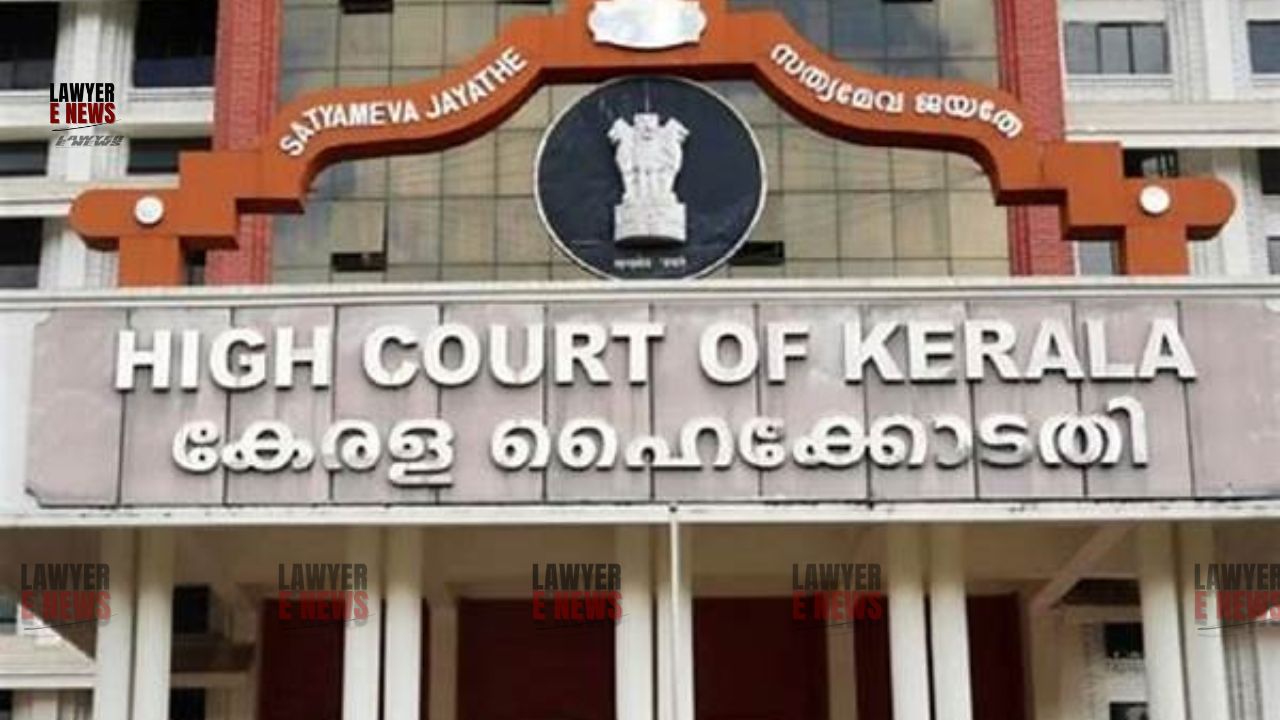-
by Admin
15 February 2026 5:35 AM



Kerala High Court, in the case of Sindhu @ Kochuthressia v. State of Kerala, allowed the appeal of a mother convicted of murdering her two minor children, Sherin (7) and Antony Shown (4½), by throwing them into the Moolampilly River. The High Court overturned the life imprisonment sentence, acquitting the mother based on an incomplete chain of circumstantial evidence, lack of motive, and inconsistencies in medical findings.
The case originated from an incident on December 4, 2015, when Sindhu and her two children were reported missing after attending a church festival in Kadamakudy Village. She was later found alive in the river the next morning, and the bodies of her two children were recovered in the following days. The prosecution alleged that Sindhu, upset over family disputes, had murdered her children by throwing them into the river from a bridge. The trial court convicted her under Section 302 of the Indian Penal Code (IPC), sentencing her to life imprisonment.
The prosecution’s case was entirely based on circumstantial evidence, including the "last seen" theory, and invoked Section 106 of the Indian Evidence Act, shifting the burden of explanation onto the accused. The key legal questions were:
Whether the circumstantial evidence conclusively established the accused's guilt.
Whether the time and manner of death of the children corroborated the prosecution’s theory.
Whether the absence of a clear motive affected the credibility of the prosecution’s case.
The court emphasized that for circumstantial evidence to result in conviction, the evidence must form a complete chain that leads directly to the guilt of the accused. The prosecution failed to conclusively prove the chain of events, particularly due to discrepancies regarding the recovery of the children’s bodies from different locations and unexplained gaps in the timeline.
The postmortem reports indicated that one of the children, Antony Shown, died 13 hours after Sindhu was rescued from the river, which directly contradicted the prosecution's claim that both children were thrown into the river simultaneously. The medical evidence, which showed no signs of drowning until hours after Sindhu's rescue, heavily weighed against the prosecution's case.
"As per the medical evidence, Antony Shown was alive at least till 9:15 p.m. on 5.12.2015, while the accused was rescued from the river at 8 a.m. on the same day." – Para 45
The court found that the "last seen" theory, which suggested that the children were last seen with their mother, could not independently establish her guilt. Given the significant time gap between their disappearance and the discovery of their bodies, the court ruled that this theory was insufficient to sustain a conviction without corroborative evidence.
"Where the time gap is long, it would be unsafe to base the conviction solely on the 'last seen theory'." – Para 28
The prosecution had alleged that family disputes, particularly with the accused's mother-in-law, were the motive behind the crime. However, the court found no concrete evidence of such animosity, and emphasized that even if there was familial discord, it was not strong enough to justify such a heinous act as filicide.
"We cannot believe, even for a moment, that a mother for such a silly reason would throw her own children into the river and murder them." – Para 64
The court highlighted several critical lapses in the prosecution’s investigation. For instance, the prosecution failed to establish the exact location from which the children were thrown into the river. Moreover, key material evidence, such as the recovery of a pair of shoes and balloons from the alleged crime scene, was not adequately linked to the children.
"There is no evidence to show that MOs 1, 3, and 4 belonged to the children or the accused." – Para 43
The defense argued that after attending the church festival, the children went missing, and the accused was later found floating in the river. The court did not entirely dismiss this version, noting that the prosecution failed to disprove the possibility of an alternative sequence of events.
In light of the incomplete chain of circumstantial evidence, inconsistencies in medical reports, and the absence of a clear motive, the Kerala High Court held that the prosecution failed to prove Sindhu's guilt beyond reasonable doubt. The conviction and life sentence were set aside, and Sindhu was acquitted.
"The circumstances brought in evidence leave reasonable ground for the conclusion leading to the innocence of the accused." – Para 69
Date of Decision: 25 September 2024
Sindhu @ Kochuthressia v. State of Kerala
